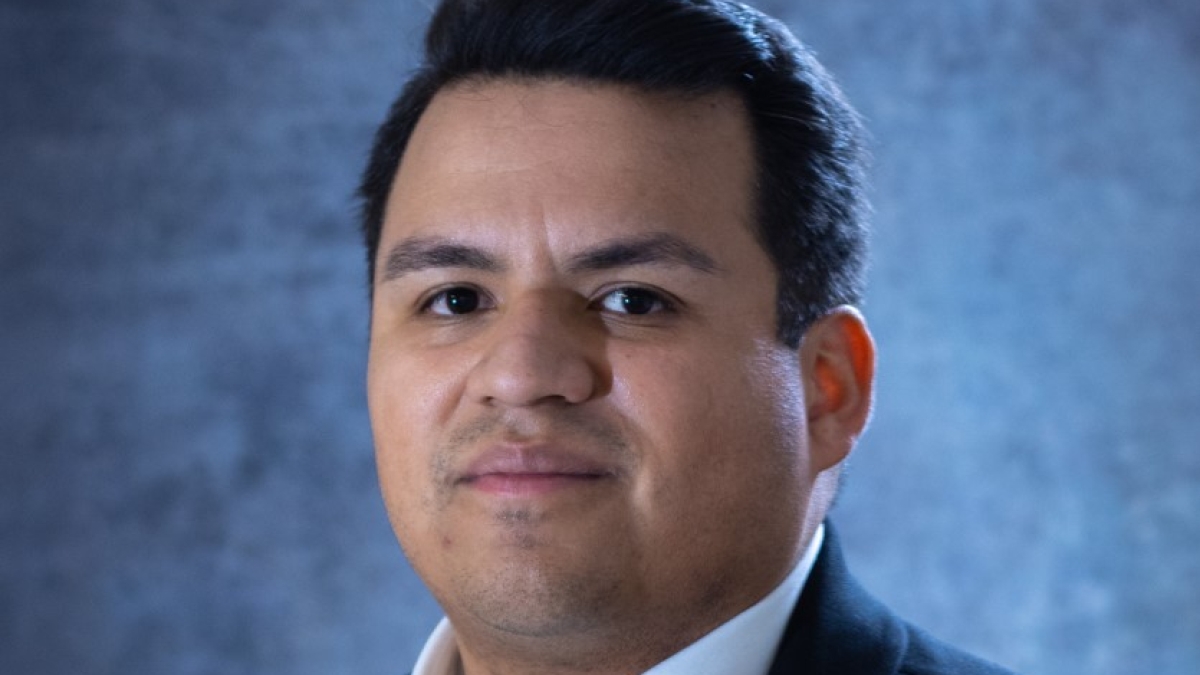Student lands city economic development director post months before graduating

Armando Esparza is earning his Master of Public Policy degree in May 2024 from the ASU School of Public Affairs. Courtesy photo
Editor’s note: This story is part of a series of profiles of notable spring 2024 graduates.
Armando Esparza attends a lot of meetings. It goes with his position as a city official.
Since January, he works a few days a week as economic development and government relations director in his hometown of San Luis, in southwestern Arizona just south of Yuma.
He also spends a few days in Phoenix, studying and tending to his fellowship, because despite having a very post-graduation-sounding job, Esparza is still a graduate student. He will earn his Master of Public Policy degree, with a certification in public administration, from the School of Public Affairs in May.
He said he accelerated his career by networking.
One of the prestigious ASU Marvin Andrews and Jane Morris Fellows in Urban Management, he made good on a goal to meet as many city managers as he could. An assistant city manager from San Luis encouraged him to apply for the director post.
His superiors thought he was ready, even a few months shy of earning his diploma. He’s working about 30 hours a week now, putting together the next fiscal year’s city budget.
Esparza, who also earned a Bachelor of Science degree in urban planning at ASU, said he will become a full-time employee after wrapping up his spring course work.
His job is primarily to lead the city’s efforts to attract new businesses from outside San Luis, expand ones that are already there and help local residents start businesses.
“We have employers big and small,” he said. “We have two industrial parks that are shovel ready. I make connections between the city and companies looking for new markets.”
In addition, Esparza tends to city infrastructure development initiatives and government relations, the latter especially when the Arizona Legislature is in session. But that function is also year round, as San Luis’ proximity to the U.S.-Mexico border, with two ports of entry, means the city of nearly 40,000 residents interfaces with many federal agencies.
San Luis’ population is comparable to the Arizona cities of Apache Junction, Kingman and Sierra Vista.
“We are not that small,” he said.
Because San Luis is smaller than Phoenix or Tucson, it offers a benefit for business those two big cities lack, Esparza said: Cheaper business costs.
“Land is a lot cheaper. Five dollars a square foot in those industrial parks with all utilities and roads included,” he said. “In Phoenix, something comparable would be $20. We are cheaper for businesses to operate.”
Although he grew up in San Luis, Esparza said it was a bit of an adjustment moving back after six years in Phoenix, when he was pursuing his two degrees at ASU. Even so, the transition back into San Luis’ familiar environment was likely easier for him than for an outsider working in the city for the first time, Esparza said.
“It’s exciting to work here,” he said. “It’s more special.”
Read on for more about Esparza’s ASU journey.
Note: Answers have been edited for length and clarity.
Question: What was your “aha” moment, when you realized you wanted to study the field you majored in?
Answer: I realized that I wanted to go into public administration after working in economic development at the state level. Local government is where it all happens.
Q: What’s something you learned while at ASU — in the classroom or otherwise — that surprised you, that changed your perspective?
A: Learning about the role of the city manager in local government. It opened my eyes to a great profession and network here in Arizona.
Q: Which professor(s) taught you the most important lesson while at ASU?
A: (School of Public Affairs) Professor of Practice Cynthia Seelhammer on city and county management and School for the Future of Innovation and Society Professor of Practice Luke Tate on economic mobility.
Q: What’s the best piece of advice you’d give to those still in school?
A: Say yes to every opportunity and build your professional network.
Q: As an on-campus student, what was your favorite spot to study, meet friends or to just think about life?
A: The Marvins' office at SPA (School of Public Affairs).
Q: If someone gave you $40 million to solve one problem on our planet, what would you tackle?
A: I would tackle the problem of misinformation, trying to make our communities good consumers of information.
More Sun Devil community

A champion's gift: Donation from former Sun Devil helps renovate softball stadium
Jackie Vasquez-Lapan can hear the words today as clearly as she did 17 years ago.In 2008, Vasquez-Lapan was an outfielder on Arizona State University’s national championship-winning softball team,…

Student-led business organization celebrates community, Indigenous heritage
ASU has seen significant growth in Native American student enrollment in recent years. And yet, Native American students make up less than 2% of the student population.A member of the Navajo Nation,…

Remembering ASU physical chemist Andrew Chizmeshya
Andrew Chizmeshya, a computational chemist and materials scientist whose work spanned over three decades at Arizona State University, died on March 7 at the age of 63.A dedicated mentor and cherished…

